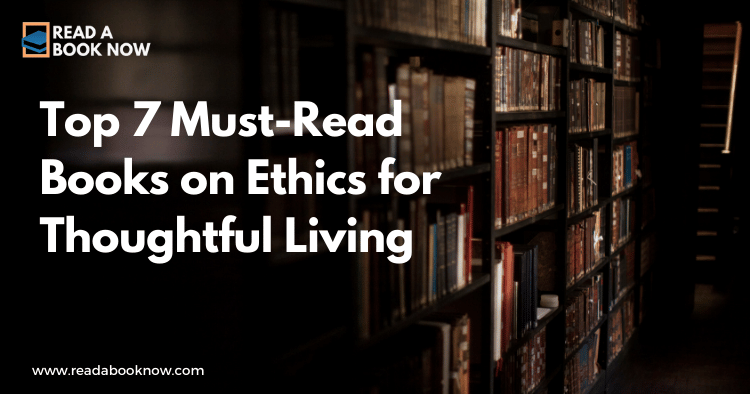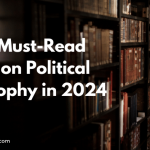Introduction
Ethics is a fascinating field that helps us navigate the complexities of human behavior, moral dilemmas, and the principles that guide our decisions. Whether you’re a student, a professional, or simply someone seeking to live a more thoughtful life, delving into ethical theory can offer valuable insights. In this article, we’ve compiled a list of the Top 7 Must-Read Books on Ethics that will challenge your thinking and inspire you to reflect on your values.
“Ethics isn’t just a subject to study; it’s a way to enrich our everyday life and relationships.”
1. Nicomachean Ethics by Aristotle
Aristotle’s Nicomachean Ethics is one of the foundational texts in Western philosophy. Written in the 4th century BC, Aristotle explores the concept of virtue and the path to a good life. His idea of the “Golden Mean” emphasizes moderation and balance in our pursuits of virtues like courage, temperance, and generosity.
- Key Takeaway: The good life is achieved through the cultivation of virtues, leading to eudaimonia, or human flourishing.
- Why Read It: This book encourages self-reflection and helps you consider what it means to live a fulfilled life.
“Virtue is the mean between two extremes.” — Aristotle
Learn more about Aristotle’s ethical philosophy here.
2. Groundwork for the Metaphysics of Morals by Immanuel Kant
Immanuel Kant’s Groundwork for the Metaphysics of Morals lays the groundwork for deontological ethics, which is based on rules and duties. Kant argues that moral actions are those performed out of duty, guided by a universal moral law he termed the Categorical Imperative.
- Key Takeaway: Actions are morally right if they can be universally applied, emphasizing the importance of intention over consequences.
- Why Read It: Kant’s rigorous approach to ethics will challenge you to consider not just the outcomes of your actions but the principles that guide them.
“Act only according to that maxim whereby you can, at the same time, will that it should become a universal law.” — Immanuel Kant
Explore Kant’s moral philosophy further at Stanford Encyclopedia of Philosophy.
3. Utilitarianism by John Stuart Mill
John Stuart Mill’s Utilitarianism presents a consequentialist view that evaluates the morality of actions based on their outcomes. Mill advocates for the greatest happiness principle, where the right action is the one that maximizes happiness for the greatest number.
- Key Takeaway: Morality is about maximizing overall happiness and reducing suffering, emphasizing the consequences of our actions.
- Why Read It: This book invites you to think about the broader implications of your choices and how they affect others.
“The greatest happiness of the greatest number is the foundation of morals and legislation.” — John Stuart Mill
Discover more about Mill’s utilitarian philosophy here.
4. The Elements of Moral Philosophy by James Rachels
James Rachels’ The Elements of Moral Philosophy provides a clear and engaging introduction to various ethical theories, including utilitarianism, Kantian ethics, and virtue ethics. Rachels explores complex moral issues and encourages critical thinking about ethical dilemmas.
- Key Takeaway: Understanding different ethical frameworks can help you navigate moral complexity in real-world situations.
- Why Read It: Rachels’ accessible writing makes this book perfect for beginners or anyone looking to refresh their ethical knowledge.
“Philosophy is not about finding the right answers, but about asking the right questions.” — James Rachels
Check out a detailed summary of Rachels’ work.
5. Justice: What’s the Right Thing to Do? by Michael Sandel
In Justice: What’s the Right Thing to Do?, Michael Sandel tackles contemporary moral issues through the lens of philosophical theories. He engages readers in discussions about justice, equality, and the common good, making complex ideas relatable.
- Key Takeaway: Ethical questions are often intertwined with societal values and require thoughtful deliberation.
- Why Read It: Sandel’s engaging style and real-life examples make ethics accessible and applicable to daily life.
“Justice is not a simple concept; it requires us to engage deeply with moral philosophy and societal values.” — Michael Sandel
Learn more about Sandel’s approach to ethics here.
6. The Ethics of Ambiguity by Simone de Beauvoir
Simone de Beauvoir’s The Ethics of Ambiguity examines existentialist ethics, emphasizing the importance of freedom and responsibility. Beauvoir argues that individuals must navigate the ambiguity of existence and make choices that acknowledge the freedom of others.
- Key Takeaway: Ethics is about embracing freedom and recognizing the interconnectedness of our choices with the freedom of others.
- Why Read It: This book challenges traditional notions of ethics and encourages a deeper understanding of personal and collective responsibility.
“One’s freedom is a condition for the freedom of others.” — Simone de Beauvoir
Explore de Beauvoir’s philosophy further here.
7. Ethics: A Very Short Introduction by Simon Blackburn
In Ethics: A Very Short Introduction, Simon Blackburn offers a concise overview of key ethical theories and issues. This book covers various approaches, including virtue ethics, consequentialism, and deontology, making it an excellent starting point for anyone interested in ethics.
- Key Takeaway: Understanding the diverse landscape of ethical thought can enrich your moral reasoning.
- Why Read It: Blackburn’s clear and concise writing is perfect for busy readers who want to grasp the essentials of ethics without getting overwhelmed.
“Ethics invites us to think critically about our values and the choices we make.” — Simon Blackburn
Find more insights into ethical theories here.
Conclusion
Engaging with these seven essential books on ethics will deepen your understanding of moral philosophy and encourage you to reflect critically on your own values and decisions. Each author brings a unique perspective, enriching the conversation around what it means to live a thoughtful and ethical life. By exploring these texts, you can cultivate a more nuanced view of the ethical dilemmas we face in today’s world.
“Reading about ethics is not merely an academic exercise; it’s an invitation to live more meaningfully.”
Also Look For:
If you’re further interested in exploring literature that intersects with ethical themes, consider checking out 10 Must-Read Feminist Classics That Changed Literature which delves into moral questions about gender and equality. Additionally, the Top 7 Must-Read Medieval Literature Classics You Can’t Miss may provide insights into the ethical frameworks of the past.
FAQs
1. Why is it important to study ethics?
Studying ethics helps individuals navigate complex moral dilemmas and make informed decisions in personal and professional contexts.
“Ethics is the bedrock of a just society; it helps us understand what it means to be human.”
2. How can reading these books improve my ethical reasoning?
These books provide diverse perspectives and frameworks that enhance critical thinking and deepen your understanding of moral philosophy.
3. Are these books suitable for beginners?
Yes! Many of these titles, like Rachels’ book and Sandel’s work, are accessible to beginners and provide a solid introduction to ethical concepts.
4. Can I apply these ethical theories to everyday life?
Absolutely! Understanding these theories can help you evaluate your choices and consider their implications for yourself and others in daily situations.
5. Where can I find these books?
You can find these books at your local bookstore, library, or online platforms like Amazon and Barnes & Noble.




